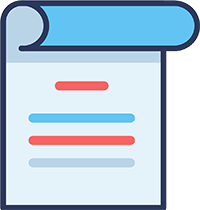2024 International Conference on Translation Education
12—14 April, 2024
The Chinese University of Hong Kong, Shenzhen
SECOND CALL FOR PARTICIPATION
2024 International Conference on Translation Education
Digital Translation Studies: Pedagogy, Research, Publication
Organiser
School of Humanities and Social Science,
The Chinese University of Hong Kong, Shenzhen
Co-Organisers
Shanghai Foreign Language Audio-Visual Publishing House
Centre for Translation Studies, The Hong Kong Polytechnic University
Centre for Translation Studies, University of Leeds
Chinese Translators Journal
Technology Enhanced Foreign Language Education
International Journal of Chinese and English Translation & Interpreting
Journal of Translation Studies (Peter Lang)
The International Journal of Translation, Interpretation, and Applied Linguistics
IGI Global
Supporter
China Academy of Translation
About the Conference
Following the tradition that dates back to the inaugural 2014 International Conference on Translation Education (ICTE 2014, Hong Kong), the 2024 Conference (ICTE 2024, Shenzhen) similarly covers both written translation and oral interpreting (hence T/I), as well as conventional classroom teaching and computer-aided translator training (hence AI).
The theme of the 2024 conference, Digital Translation Studies, indicates a focus on digitisation as a technical methodology for the study of translation and a conceptual connection between translation studies and the digital humanities at large. Digitised study of translation avails itself of developments in AI technology for the benefit of theoretical and applied translation studies. The conference invites plenary speeches and proposals for parallel presentations, panels (of not more than 4 speakers each), and posters on digitisation in translation research, teaching and practice, as well as exploring possibilities of digitisation-enhanced collaboration and synergy between academia and the publishing industry in the interests of dissemination of research output and translations.
ICTE 2024 is therefore to provide a unique forum for T/I scholars, AI researchers and developers, language educators, publishers and editors to share their experiences, concerns and insights, and discuss the implications of this 'AI leap', epitomized by the recently launched ChatGPT, for translation as a mode of liberal education and a bridge between languages, literatures and cultures, by addressing specific issues including but not limited to the following:
1. Digital Translation Studies: Pedagogy
· Technology-enhanced translator/interpreter training: from computer-aided to AI-driven or AI-led training
· Cultivation of human creativity via AI in translation: AI-amplified professional competence
· Translating with AI-empowered authenticity: language proficiency and information literacy
· Automation anxiety in translator/interpreter training
2. Digital Translation Studies: Research
· T/I Research writing and AI: fact-collection, data-generalisation, idea-generation
· T/I Research, technology, and ethics: plagiarism, fabrication, academic integrity
· Originality and creativity beyond AI: from AI-enhanced operational skills to AI-sustained intrinsic attributes of human researchers
· Research with AI: real and anticipated challenges and opportunities
3. Digital Translation Studies: Publication
· Publication of translations: the impact of AI on publication and dissemination
· Impact of AI on publication of T/I research: journals, monographs, book series
· Implications of AI-facilitated publication for language and translation education
· Synergy between academia and industry in the digital era: quality of research/translation and efficiency of dissemination
At present, authors of English presentations are welcome to submit their full papers to The International Journal of Translation, Interpretation, and Applied Linguistics (IJTIAL) for consideration of publication in one of the journal’s upcoming special issues, Digital Translation Studies: Pedagogy, Research, Publication scheduled for publication. Interested authors may consult the journal’s guidelines for manuscript submissions at the following link: http://www.igi-global.com/publish/contributor-resources/.
Other publication outlets, subject to respective publishers’ review procedures, will be announced in due course on the conference’s webpage: https://hss.cuhk.edu.cn/article/1041 and https://conf.scholat.com/home/ICTE/2024.
